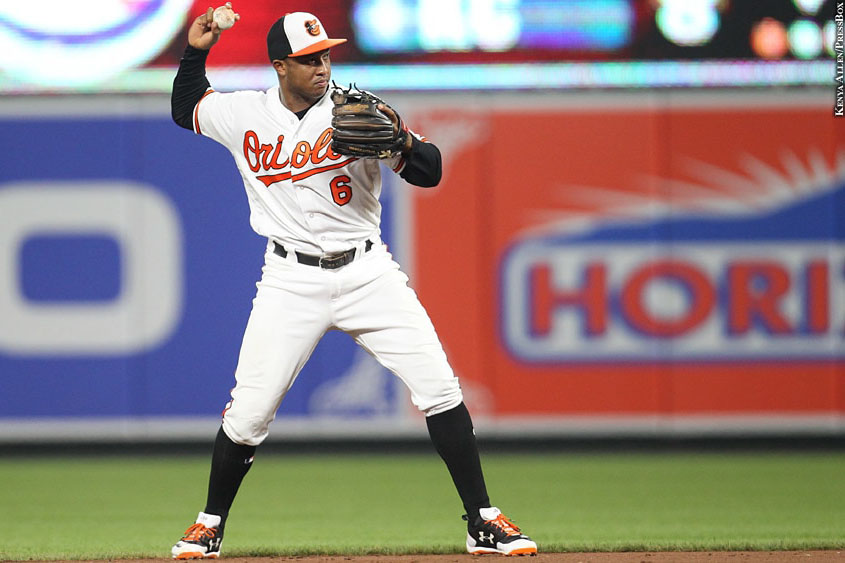The next outcry you hear from Orioles fans will echo the question famously uttered by Butch Cassidy and the Sundance Kid when they saw those relentless lawmen pursuing them: “Who are those guys?”
Who are they, indeed? Having traded away future Hall of Famer Manny Machado last week for five minor league players, the last-place Orioles this week traded All-Star Jonathan Schoop and the great relief pitcher Darren O’Day and former No. 4 draft pick Kevin Gausman — for a whole bunch of more minor leaguers.
The Orioles, mired in perhaps their worst season, and certainly their most disappointing one in 64 years, call it cleaning house.
Goodbye, best players, and goodbye, high salaries.
But any house-cleaning that doesn’t involve Chris Davis – currently hitting .157 and cashing $161 million in pay over seven years – doesn’t get to the core of the problem.
If Davis has even a semi-indecent year – say, hits .225 and shows even a semblance of his former power – and maybe the Orioles don’t collapse quite so awfully, and maybe they hold onto some All-Star players, we won’t have to inquire: Who are those guys?
Some of us imagined we’d have the pleasure of watching Machado and Schoop play their entire careers here. It doesn’t happen often in modern baseball, but these guys aren’t ordinary players. They’re young, superior athletes, and they might each get into Cooperstown.
What’s more, they’re best buddies. You might think that’d be a selling point for the Orioles to hold on to these two: The money’s going to be sky high no matter who you play for, so wouldn’t it be nice to spend the next 10 years playing alongside your best pal?
I put that question to a former major leaguer the other day, a former Oriole who played before the big money came in. Wouldn’t the friendship angle – Machado and Schoop – give the Orioles any leverage?
Only, he said, if it split a minor difference between the Orioles’ financial offer and some other team’s. But the key element with modern ballplayers, he said, is ego. They want bragging rights on who’s got the biggest contract.
And what that means is that after a few years and players become eligible for free agency, only the richest teams will be able to afford the very best players. All other teams will have a small window in which to develop players, employ them at reasonable prices, and hope they can put together a miracle season before losing them to greener pastures.
The Orioles’ best players have now moved on to greener pastures. The next generation has arrived. They’ll wear their names on the backs of their uniforms, and maybe they should wear name tags with their photos on the front, at least for a while.
Because for the foreseeable future, we’ll be watching them and asking: Who are those guys?
 A former Baltimore Sun columnist and WJZ-TV commentator, Michael Olesker is the author of six books. His most recent, “Front Stoops in the Fifties: Baltimore Legends Come of Age,” has just been re-issued in paperback by the Johns Hopkins University Press.
A former Baltimore Sun columnist and WJZ-TV commentator, Michael Olesker is the author of six books. His most recent, “Front Stoops in the Fifties: Baltimore Legends Come of Age,” has just been re-issued in paperback by the Johns Hopkins University Press.





